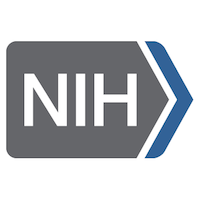Microbiome and Nutrition
The complex community of bacteria, yeasts and viruses living in our intestines, collectively known as the gut microbiome, is shaped, in part, by what we eat. Genetics, environment, and other factors also influence an individual’s microbial community. Research at the NRI investigates these complex relationships and their impact on disease risk. We use animal models and bioinformatics to study the associations between nutritional metabolites, gut microbiome, and health. What happens in the gut doesn’t stay in the gut. Your microbiome can play a role in cardiovascular disease, obesity and diabetes, and even cancer. Our team envisions a future where analysis of your microbiome can determine disease risk, and medical foods can be prescribed to treat and prevent disease by regulating the microbiome.
Publications
Microbiome and Nutrition Publications
2020
Population studies of TMAO and its precursors may help elucidate mechanisms. Meyer K
2019
Association of dietary patterns with the gut microbiota in older, community-dwelling men. Meyer K
2018
Meta-analysis of human genome-microbiome association studies: the MiBioGen consortium initiative. Meyer K
Human microbiota, blood group antigens, and disease. Sumner S
2017
Trimethylamine N-Oxide, the Microbiome, and Heart and Kidney Disease. Zeisel S
2016
Diet and Gut Microbial Function in Metabolic and Cardiovascular Disease Risk. Meyer K
Antibiotic-mediated gut microbiome perturbation accelerates development of type 1 diabetes in mice. Sumner S
Related News
Startup SNP Therapeutics Merges Gene Testing With Personalized Nutrition
July 15, 2019 – In what may be the ultimate affirmation of “you are what you eat,” an innovative Charlotte-area company is merging high-tech genomic testing with personalized nutritional formulations to treat individual medical conditions.
Zeisel Presents Before NIH
Nutrition Research Institute (NRI) Director Steven Zeisel, MD, PhD, recently presented before the National Institutes of Health (NIH) Nutrition Research Task Force (NRTF). The NRTF was established in October 2016 to coordinate and accelerate progress in nutrition...
July 2019
Chinese herb may be a natural method of treating diabetes June 28, 2019 –The traditional Chinese herb Lycii Cortex (LyC), with its powerful compound kukoamine B, could be an effective nutraceutical choice for lowering blood glucose when used alone or in combination...
What should I eat on my night shift?
June 11, 2019 -Martin Kohlmeier, MD, PhD, director of the Human Research Core at the University of North Carolina’s Nutrition Research Institute, says, “The effect of a disrupted sleep cycle on energy metabolism is real but of modest size. In the end, it’s about the practicalities of food access, convenience, and the time demands of the shift. Planning ahead is your friend.
NRI seeks volunteers to help make research discoveries
June 3, 2019 -The UNC Nutrition Research Institute (NRI) in Kannapolis, North Carolina is looking for volunteers to help move science forward. The NRI’s mission is to advance the field of precision nutrition by investigating how genetics, gut microbiota, and environment affect an individual’s requirements for and responses to nutrients. To that end, several NRI principal investigators are currently recruiting participants for their clinical studies.
Chinese herb may be a natural method of treating diabetes
May 31, 2019 – The traditional Chinese herb Lycii Cortex (LyC), with its powerful compound kukoamine B, could be an effective nutraceutical choice for lowering blood glucose when used alone or in combination with low doses of first-line diabetes medications.






